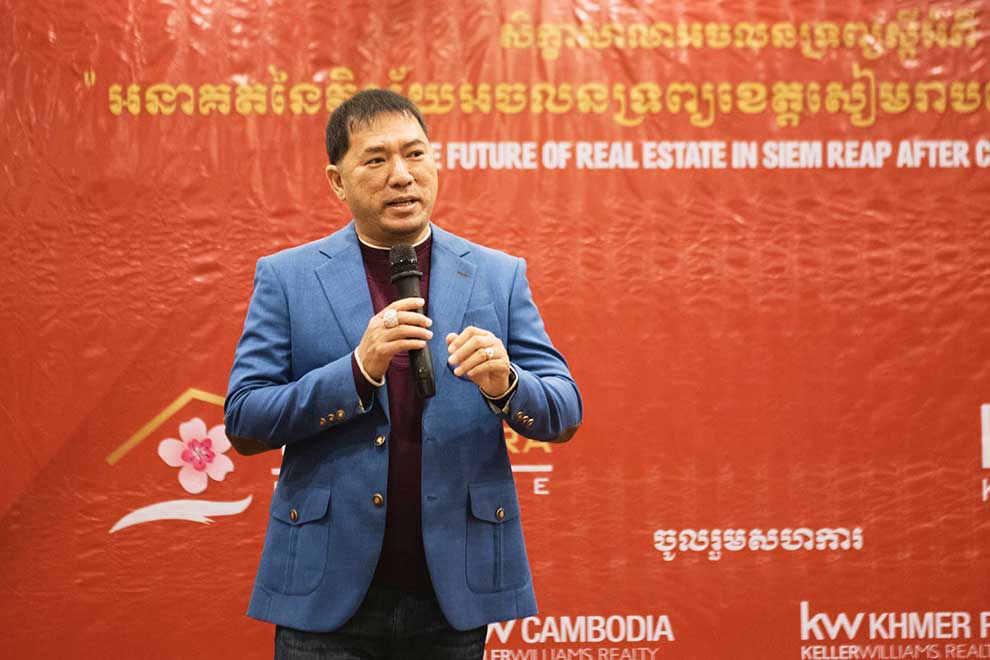
Kim Heang has issued a public apology over his earlier complaints regarding Siem Reap’s zoning laws restricting the height of buildings. FB
Real estate developer Kim Heang recently made remarks on social media regarding matters related to Cambodia’s national cultural heritage that stirred up controversy and drew denunciations from a number of leading figures in government, academia and even his own associates in the business community.
An official critique of Heang’s statements came from the Ministry of Culture and Fine Arts, which accused him of putting his own real estate deals and business interests ahead of the promotion and protection of the Kingdom’s cultural heritage.
The controversy erupted when a short video clip of Heang speaking at a real estate conference in Siem Reap town was posted to social media, wherein Heang made a number of statements critical of the views championed by the national authorities in charge of conservation of heritage sites and even the internationally recognised UNESCO World Heritage Protection Rules.
The culture ministry’s press release accused Heang of making irresponsible attacks that “lacked in education” and the kind of knowledge of the comprehensive research on World Heritage protection that supports the government’s current heritage preservation policies.
The ministry said it believed that Heang’s opinions were one-sided and demonstrated that his sole interest was in promoting the value of his real estate investments in the Siem Reap-Angkor area.
Royal Academy of Cambodia (RAC) president Sok Touch took to Facebook on February 16 to weigh in on the matter, stating that Heang only cared about his own “selfish interests” and had no regard for what was in the national interest or for the legacy of the Khmer ancestors.
“How many of these people fixated on building new skyscrapers do we need in Cambodia? We’ve got no shortage of high-rise buildings. Stay out of Siem Reap and you can build them thousands of floors high in the capital and every other province. Just not in Siem Reap,” he said.
Hun Many, a National Assembly member representing Kampong Speu province, also chimed in on Facebook, saying that he supported the right to freedom of expression and differing opinions but that people needed to be responsible with their statements to avoid causing harm to hundreds of individuals, institutions and the officials who have dedicated their lives to preserving the Kingdom’s ancestral heritage.
Many noted that Heang’s ideas were one-sided and were not accurately describing the reality of the situation whereas the government’s views were shaped through discussions and research undertaken by hundreds and or even thousands of experts and officials working over a period of many years in some cases.
“The word patriotism has a sacred meaning to it and we should invoke its spirit often, not just as a word but in the practical execution of our deeds,” he said.
Heang issued a public apology on February 17 in light of the fierce reaction from the general public and various prominent figures.
Many responded in a brief statement that seemed to accept the sincerity of the apology and defused some of the public tension surrounding Heang’s words.
“I commend this individual’s decision to write this public apology,” he said.








